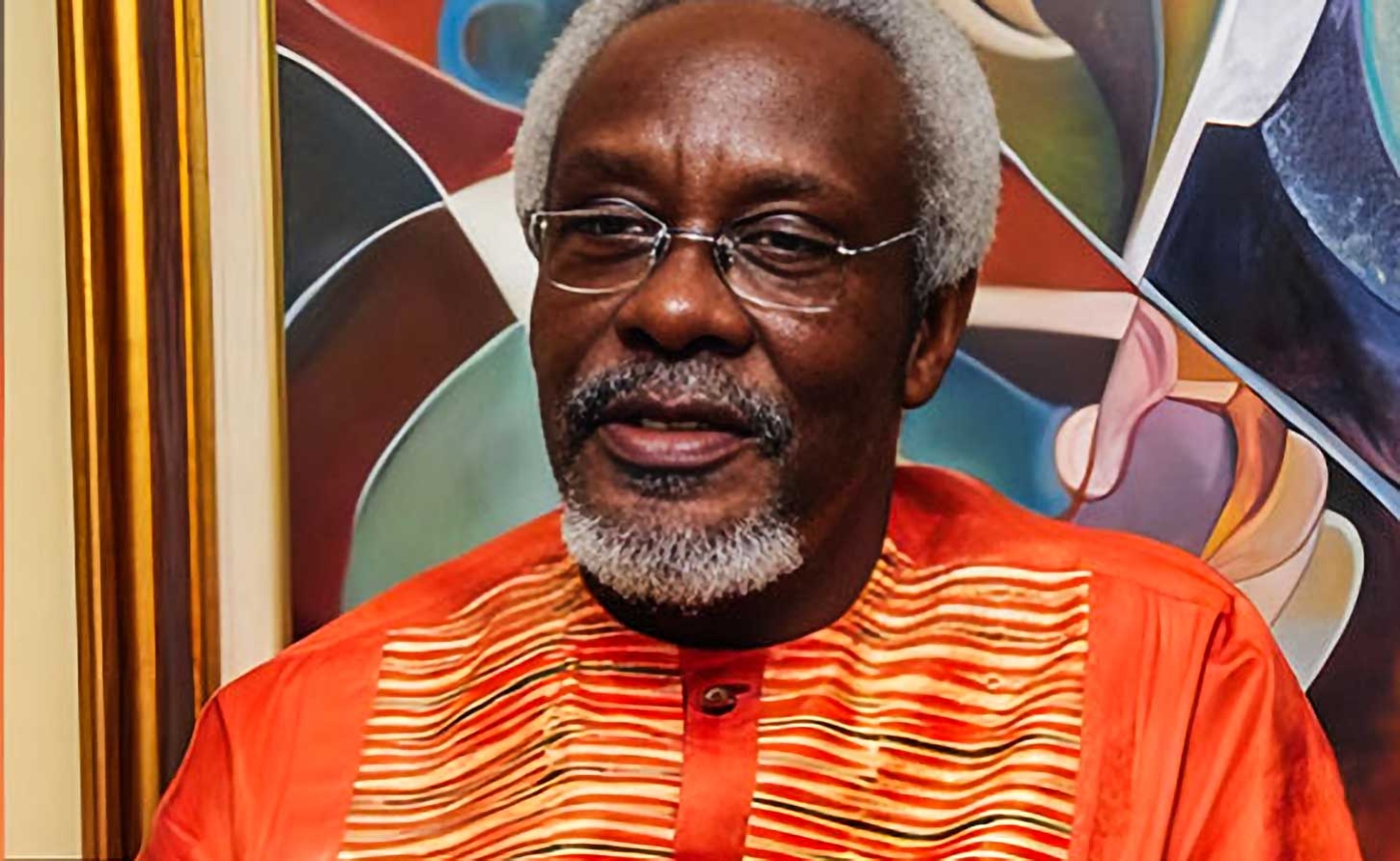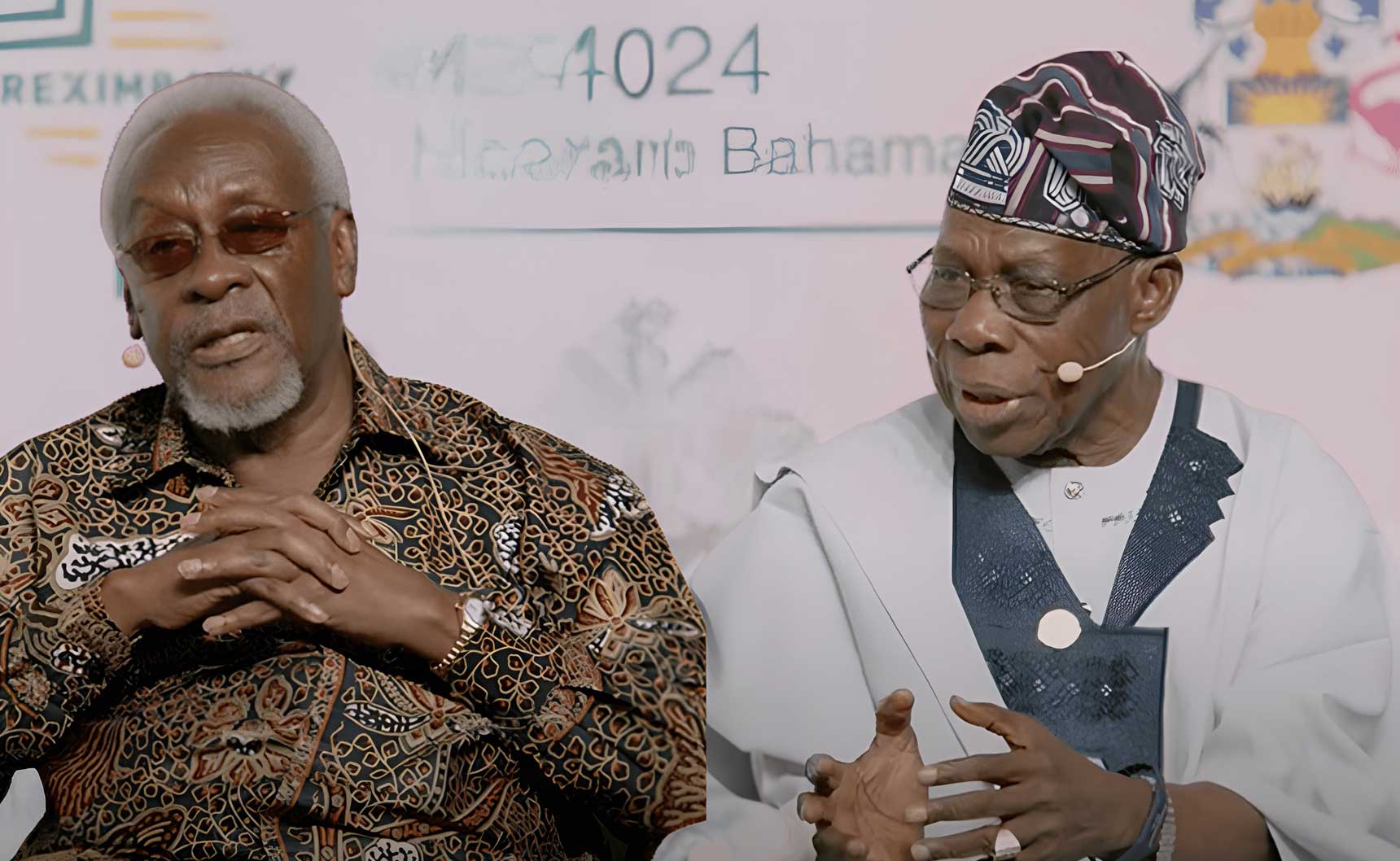JAMAICA | Patterson at 90: Jamaica's Titan of Political History Marks Milestone

MONTEGO BAY, Jamaica — The elder statesman of Jamaican politics, P.J. Patterson, reaches his 90th birthday milestone today, April 10, casting a long shadow across the nation's modern political landscape.
While the former Prime Minister plans a "quiet day" at his St. Andrew residence, the celebration of his legacy will crescendo Saturday with ceremonies at the University of the West Indies (UWI) Mona campus.
The ceremonial unveiling of a pan-Africanist mural at the PJ Patterson Institute for Africa Caribbean Advocacy stands as a fitting tribute to a man whose career has been defined by championing African-Caribbean solidarity since his political retirement in 2006.
Patterson's legendary status extends far beyond Jamaica's shores, reaching across the Atlantic to Africa where he is revered as a stalwart Pan-Africanist. This continental connection was recently strengthened with the launch of a new book co-authored with former Nigerian President Olusegun Obasanjo, who sent a glowing tribute to mark Patterson's 90th birthday.
"Your journey over nine illustrious decades has been nothing short of extraordinary," Obasanjo wrote. "From the rural roots of Hanover to the global stage, your life is a testament to the power of vision, determination, and unwavering service to humanity. You have not only profoundly shaped Jamaica's destiny but have also been a guiding light across the Caribbean and beyond."
Born to farmer Henry Patterson and educator Ina James in the humble surroundings of Dias in 1935, Patterson's trajectory from rural Jamaica to the highest office in the land reads like a testament to the nation's post-colonial promise.
His academic journey took him from Somerton Primary School to the prestigious Calabar High School, where his intellectual promise earned him the Purscell Trust Scholarship before graduating in 1953.
Patterson's scholarly pursuits led him to the University College of the West Indies (now UWI), where he earned a Bachelor of Arts in English with honors in 1958. His legal education at the London School of Economics proved equally distinguished, garnering both the Leverhume Scholarship and the Sir Hughes Parry Prize for Excellence in the Law of Contracts before receiving his Bachelor of Laws in 1963.

That patient climb to power would culminate in his unprecedented 14-year tenure as Prime Minister from 1992 to 2006 – the longest in Jamaica's history.
In his birthday message, Obasanjo highlighted this exceptional tenure: "As Jamaica's longest-serving Prime Minister, your legacy of transformation—whether through the modernisation of infrastructure, the revitalisation of tourism, or the promotion of South-South cooperation—has inspired countless leaders, including myself."
Even his political rivals acknowledge the weight of his contributions. Then-opposition leader Bruce Golding, speaking at a parliamentary session marking Patterson's retirement in 2006, noted that his legacy should be measured by "the impact he was able to make and the degree to which he influenced the nation's future."
Golding particularly highlighted Patterson's deft hand in international trade negotiations, from the groundbreaking Lomé convention to complex African Caribbean and Pacific/European Union partnership agreements.
"Whatever criticisms that have been made of him in the past and whatever may be made in the future as his legacy is scrutinized and analyzed," Golding conceded, "no one can question his commitment to his country, his love for the Jamaican people, or the sincerity of his intentions."
The diplomatic brilliance that defined Patterson's international engagements perhaps reached its apex in his work with the ACP, where former CARICOM Secretary General Edwin Carrington revealed the astonishing fact that "PJ alone wrote the entire ACP Agreement!" – a testament to both his legal prowess and diplomatic vision.
Obasanjo's message also pointed to future collaborations, revealing plans to join Patterson in August 2025 for Liberation Day celebrations in the Caribbean and the launch of their book on slavery, "Lest We Forget: Slavery, Slave Trade, Colonisation, Emancipation and Reparation," further cementing Patterson's ongoing commitment to addressing historical injustices.
When asked to identify Jamaica's finest political leader, former MP for West Portland, the late Errol Ennis didn't hesitate: "I would say PJ, because of his achievements generally, for gains made by the working class, the provision of more schools, the building of roads, houses and utilities.
He did more to advance the economic and social development of the Jamaican people, more than any other prime minister, that is without dispute."
As Patterson reaches this venerable milestone, his attempt to maintain a low-key birthday seems destined to fail. "I know people will pass through, I can't stop that," he acknowledged with characteristic pragmatism in a recent newspaper interview. "Whether I like it or not, the 90th is the 90th and I couldn't escape anything."
For a man who spent decades at the white-hot center of Jamaican politics, this brief return to the spotlight – however reluctant – seems a fitting tribute to a statesman whose influence continues to echo through Jamaica's political corridors nearly two decades after leaving office, while his pan-African vision forges new paths toward reconciliation and continental solidarity.
-30-
